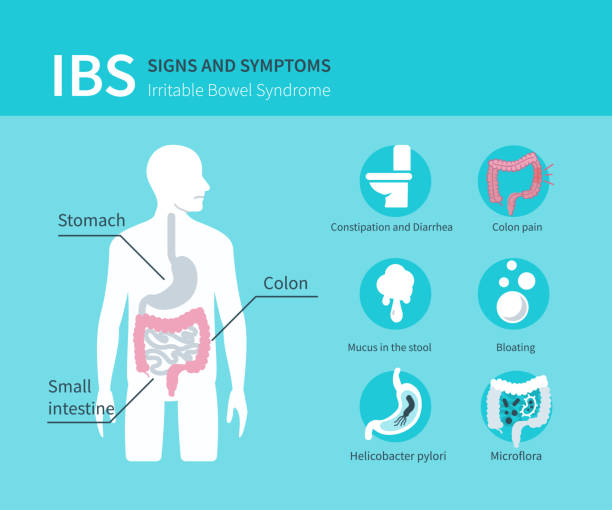What is Irritable Bowel Syndrome (IBS)?
Irritable Bowel Syndrome, commonly known as IBS, is a chronic gastrointestinal disorder that affects the large intestine or colon. It is characterized by a group of symptoms that include abdominal pain, bloating, constipation, and diarrhea. While the cause of IBS is not fully understood, it is believed to be related to the interaction between the brain and the gut.
Signs and Symptoms of IBS
The symptoms of IBS vary from person to person and can range from mild to severe. The most common signs and symptoms of IBS include:
Abdominal pain and discomfort
Individuals with IBS may experience cramping, pain, or discomfort in the abdomen. The pain can range from mild to severe and may be relieved by passing gas or having a bowel movement.
Changes in bowel habits
IBS can cause changes in bowel habits, such as constipation, diarrhea, or alternating between the two. Individuals with IBS may also experience a feeling of incomplete evacuation after a bowel movement.
Bloating and gas
IBS can cause bloating and increased gas production, which can lead to discomfort and embarrassment.
Causes of IBS
The exact cause of IBS is not known. However, research suggests that several factors may contribute to the development of the disorder.
Gut-brain axis
The gut-brain axis refers to the bidirectional communication between the brain and the digestive system. IBS may be related to a disruption in this communication, leading to abnormal gut function and symptoms.
Genetics
There may be a genetic component to IBS, as the disorder tends to run in families.
Food sensitivities
Certain foods may trigger IBS symptoms in some individuals. Common triggers include dairy products, caffeine, alcohol, and fatty foods.
Diagnosis of IBS
There is no specific test for IBS. Instead, a diagnosis is typically made based on a medical history and physical exam, as well as the presence of certain symptoms.
Medical history and physical exam
During a medical history and physical exam, a healthcare provider will ask about symptoms, medical history, and family history. They will also perform a physical exam to check for signs of other conditions that may cause similar symptoms.
Diagnostic tests
Diagnostic tests, such as blood tests, stool tests, or imaging studies, may be ordered to rule out other conditions that may cause similar symptoms.
Treatment of IBS
Treatment for IBS focuses on managing symptoms and improving quality of life. Several approaches may be used, including dietary changes, medications, and stress management.
Dietary changes
Eliminating trigger foods from the diet may help reduce symptoms in some individuals with IBS. Other dietary changes that may be helpful include increasing fiber intake and drinking plenty of water.
Medications
Several medications may be used to treat IBS symptoms, including antispasmodics, laxatives, and antidepressants.
Stress management
Stress management techniques, such as exercise, meditation, and relaxation techniques, may also be helpful in reducing IBS symptoms.
Living with IBS
Living with IBS can be challenging, but there are several coping strategies that can help. These may include:
Coping strategies
- Keeping a symptom diary to identify triggers
- Planning meals and snacks to avoid trigger foods
- Practicing good sleep hygiene
- Staying hydrated
- Exercising regularly
- Avoiding or managing stressful situations
Support groups
Joining a support group can also be helpful for individuals with IBS. Support groups provide a safe and supportive environment to share experiences and learn from others.
FAQs
-
Is IBS a serious condition? While IBS can be uncomfortable and disruptive to daily life, it is not considered a serious or life-threatening condition.
-
Can stress cause IBS? Stress does not cause IBS, but it can trigger or worsen symptoms in some individuals.
-
Is there a cure for IBS? There is no cure for IBS, but treatment can help manage symptoms and improve quality of life.
-
Can diet changes help with IBS symptoms? Eliminating trigger foods from the diet and making other dietary changes, such as increasing fiber intake, can help reduce IBS symptoms in some individuals.
-
Is it necessary to see a doctor for IBS? It is recommended to see a doctor if you are experiencing persistent or severe symptoms of IBS, as they can help with diagnosis and treatment.
Conclusion
Irritable Bowel Syndrome is a chronic gastrointestinal disorder that affects many individuals worldwide. While the cause of IBS is not fully understood, there are several treatment options available to help manage symptoms and improve quality of life. By making lifestyle changes, such as dietary changes, stress management, and exercise, and seeking support from healthcare providers and support groups, individuals with IBS can lead fulfilling lives.
Sources
-
"Irritable Bowel Syndrome (IBS)." Mayo Clinic, Mayo Foundation for Medical Education and Research, 29 Apr. 2021, https://www.mayoclinic.org/diseases-conditions/irritable-bowel-syndrome/symptoms-causes/syc-20360016.
-
National Institute of Diabetes and Digestive and Kidney Diseases. "Symptoms & Causes of Irritable Bowel Syndrome." U.S. Department of Health and Human Services, 2021, https://www.niddk.nih.gov/health-information/digestive-diseases/irritable-bowel-syndrome/symptoms-causes.
-
Ford, Alexander C., et al. "American College of Gastroenterology Monograph on the Management of Irritable Bowel Syndrome and Chronic Idiopathic Constipation." The American Journal of Gastroenterology, vol. 109, no. S1, 2014, doi:10.1038/ajg.2014.187.
-
"Irritable Bowel Syndrome (IBS)." International Foundation for Gastrointestinal Disorders, 2021, https://www.iffgd.org/diet-treatments/ibs-diet/.





